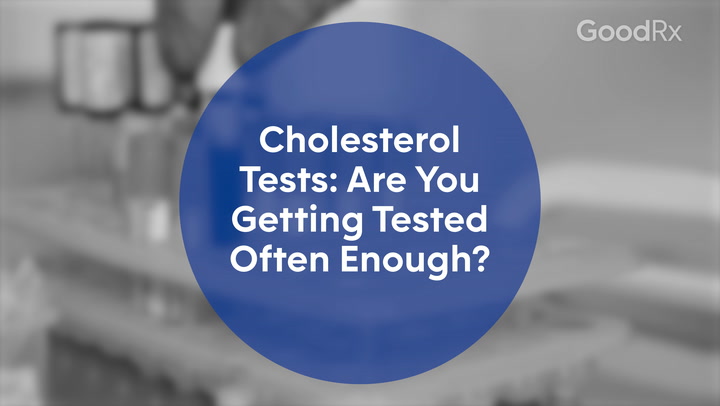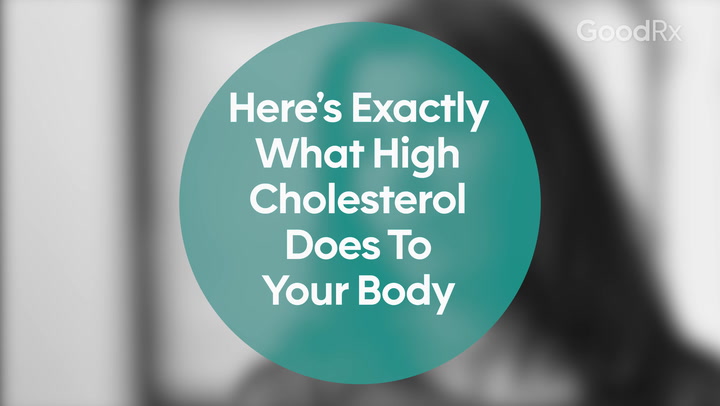
7 Statin Alternatives You Can Take to Help Lower Your Cholesterol
Key takeaways:
Statins, such as atorvastatin (Lipitor), are first-choice medications for treating high cholesterol. But they’re not right for everyone.
Statin alternatives, such as ezetimibe (Zetia), can be taken with or without statins to help you meet your cholesterol goals. They’re most effective when paired with a heart-healthy diet and routine exercise.
Other statin alternatives include fibrates like gemfibrozil (Lopid), bile acid sequestrants like cholestyramine (Prevalite), ATP citrate lyase (ACL) inhibitors like bempedoic acid (Nexletol) and bempedoic acid / ezetimibe (Nexlizet), and more.
Natural and over-the-counter medications may also help manage your cholesterol levels. A healthcare professional can help you decide which products may be safe to try.
Access savings on related medications
Table of contents
Statins have been first-choice treatments for high cholesterol for years. But for some people, a statin may not be the right medication. They can sometimes cause side effects that aren’t tolerable. In other cases, a statin alone may not lower your cholesterol enough.
When they’re needed, statin alternatives are available to treat high cholesterol so you can better meet your health goals.
Why aren’t statins always the best high cholesterol medication?
There are some cases where statins may not be the best or only option for cholesterol management.
Prescription Savings Are Just the Beginning
See what other benefits you qualify for—from cashback cards to cheaper insurance.

If your cholesterol levels are still high while taking a statin such as atorvastatin (Lipitor), adding another cholesterol-lowering medication could be a good solution.
Safety is another factor. Statin intolerance may prevent some people from taking a statin. For instance, statins have been linked to muscle pain, including rare but serious muscle damage that can harm the kidneys. What’s more, women who are pregnant should avoid statins. They can affect how a growing fetus develops in the womb.
In cases like these, healthcare professionals may recommend a statin alternative. The best non-statin cholesterol medication for you will depend on many factors, such as your age, how high your LDL (or “bad”) cholesterol is, or if you’ve had a heart attack or stroke in the past.
Many statin alternatives are available. The goal of each one is to help get your cholesterol levels down. Let’s discuss seven of the top options.
1. Ezetimibe
Ezetimibe (Zetia) is a medication that’s often prescribed in cases where a statin alone isn't enough. A healthcare professional might recommend it if you’re taking the maximum recommended dose of your statin but your cholesterol levels are still high. They might also recommend it in combination with atorvastatin or simvastatin (Zocor, FloLipid) if you have a genetic condition called homozygous familial hypercholesterolemia.
Ezetimibe works by preventing your small intestine from absorbing cholesterol. This causes your body to use up cholesterol in your blood. It’s one of the few non-statin cholesterol medications that can lower LDL cholesterol levels even more when combined with a statin. You can also combine it with other statin alternatives.
What you can do to feel better: Learn how to manage muscle pain from statins without stopping your prescription.
Thinking of stopping your statin? Here’s what you need to know about the risks of stopping a statin and how to do so safely.
PCSK9 inhibitors vs. statins: Both medication classes are effective treatment options for lowering LDL cholesterol. Here’s what sets them apart.
Ezetimibe comes as an oral tablet taken once daily. It’s also available in combination with a statin in a pill called Vytorin (ezetimibe / simvastatin) for convenience. If you can’t take a statin, it's also available in combination with a statin alternative called bempedoic acid (as Nexlizet). We’ll discuss this more later.
2. Fibrates like gemfibrozil
Fibrates, such as fenofibrate (Tricor) and gemfibrozil (Lopid), mildly lower LDL cholesterol levels. But their main benefit is treating high triglyceride levels. Triglycerides are a type of fat found in the blood. When triglyceride levels are too high, it can lead to conditions like heart disease and pancreatitis.
Fibrates can be prescribed with a statin, with ezetimibe, or taken alone as a statin alternative. But combining them with statins can mean more side effects, especially with gemfibrozil. Because of this, it’s best to avoid taking gemfibrozil with a statin.
3. Bile acid sequestrants like cholestyramine
Cholestyramine (Prevalite), colestipol (Colestid), and colesevelam (Welchol) belong to a class of medications called bile acid sequestrants. Bile acids are molecules made from cholesterol in the liver. Our intestines use them to help digest and absorb fats.
Bile acid sequestrants attach to bile acids, which prevents them from being reabsorbed. As a result, the body removes them in the stool. The liver needs to use more cholesterol from the blood to make new bile acids, resulting in lower cholesterol levels.
Bile acid sequestrants can lower LDL cholesterol, but they do have some disadvantages:
You may need to take several pills multiple times a day.
They can interact with other medications and vitamins. This can make them less effective.
They may cause triglyceride levels to increase.
They may cause constipation and stomach upset.
4. Omega-3 fatty acids like Lovaza
There are two prescription omega-3 fatty acid medications available: Lovaza and Vascepa. Lovaza has two kinds of fatty acids, EPA and DHA. Vascepa (icosapent ethyl) is a newer medication that only contains EPA. They mainly help lower very high triglyceride levels.
You can take omega-3 fatty acid medications in combination with statins. They usually aren’t taken alone for cholesterol support.
Good to know: In some cases, a healthcare professional may recommend taking Vascepa to lower the risk of heart-related health problems. This is especially true if you take the highest dose of a statin and still have high triglyceride levels.
5. PCSK9 inhibitors like Praluent and Repatha
Praluent (alirocumab) and Repatha (evolocumab) are in a newer group of medications called PCSK9 inhibitors. These cholesterol-lowering medications are injected under the skin once to twice monthly. They work by blocking an enzyme (protein) in the liver called PCSK9. PCSK9 is a protein that indirectly lessens LDL cholesterol removal from the blood. Blocking PCSK9 helps the liver clear more LDL cholesterol, leading to lower levels.
PCSK9 inhibitors are typically considered after trying statins and ezetimibe. They might be considered if a maximum statin dose, lifestyle changes, and ezetimibe aren’t enough. Sometimes, they might even be used instead of ezetimibe.
These statin alternatives are often very effective. But they can cause cold and flu-like symptoms, and we’re still learning about their possible long-term effects. What’s more, not every pharmacy has these medications, so it may be helpful to check with your pharmacy to make sure they can fill your prescription. You may need to use a specialty pharmacy.
6. Leqvio
In late 2021, the FDA approved Leqvio (inclisiran) to help lower LDL cholesterol. It’s in another newer class of medications called small interfering RNAs (siRNAs). Leqvio blocks the PCSK9 enzyme, but it works differently than Praluent and Repatha. It stops the gene that makes the PCSK9 enzyme from working.
Leqvio is usually combined with a statin for high cholesterol due to different causes, including heterozygous familial hypercholesterolemia. This condition is present at birth and results in very high cholesterol levels. When combined with a statin, Leqvio can lower cholesterol levels by up to 40% to 50%.
After your first two starter doses, Leqvio is injected under the skin every 6 months by a healthcare professional. Common side effects include pain and swelling at the injection site. It’s usually available through a specialty pharmacy, too.
7. ACL inhibitors like Nexletol and Nexlizet
Bempedoic acid (Nexletol) and bempedoic acid / ezetimibe (Nexlizet) are the two ATP citrate lyase (ACL) inhibitors that are available. These are newer medications approved to lower LDL cholesterol in a different way than other cholesterol medications. They prevent your liver from making cholesterol by blocking the ACL enzyme from working. This also results in more LDL cholesterol being removed from the blood.
ACL inhibitors currently have a few approved uses in adults:
If you have high cholesterol, your prescriber may recommend taking Nexletol or Nexlizet in combination with a statin. Or, if a statin isn’t a good option for you, you may take Nexletol or Nexlizet by itself. They’re both meant to be paired with a low-cholesterol diet.
If you have heart disease or heart disease risk factors and a statin isn’t a good option for you, a healthcare professional may prescribe Nexletol or Nexlizet to lower the risk of having a heart attack and other heart-related events.
Are there natural alternatives to statins that can help lower cholesterol?
Yes. Prescription medications aren’t the only way to tackle high cholesterol. Some natural and over-the-counter (OTC) products can play an important role, too. For instance, adding more soluble fiber to your diet is one easy way to lower cholesterol. Other options are also available.
Common foods that help lower cholesterol include:
Plant sterols (found in nuts, grains, and more)
Soy products
Fatty fish, such as salmon
Avocados
Fruits, especially berries and bergamot
Vegetables
Legumes
Dietary supplements that may help lower cholesterol include:
Omega-3 fatty acids from fish oil
Vitamin C
Niacin
Psyllium
Berberine
Probiotics
Non-prescription products like these can come with their own risks. Before you make any purchases, talk to a healthcare professional. They can help you determine what’s safe to try.
Frequently asked questions
There’s no specific age at which statins are no longer recommended. But compared to younger adults, there’s less research on statin use by people ages 75 years and older.
Certain adults in this age group may benefit from taking a statin, though. It may be reasonable to continue taking a statin at this age if you’re already taking one or if you’ve had a stroke or heart attack in the past. A healthcare professional can help you decide if continuing or starting a statin at this age would be right for you.
A common concern with statins is their side effects, even though most people are able to take them without issues. Some healthcare professionals may believe the risk of side effects might outweigh the benefits for some people. Others may feel that statins aren’t for everyone, especially those with low risk of having a heart attack or stroke in the next 10 years. But many healthcare professionals continue to trust statins for lowering cholesterol.
The bottom line
If you’re living with high cholesterol, there are many treatments to choose from. Statins are usually the first type of medication that’s recommended. But if a statin alone isn’t an option or if you can’t take one, several statin alternatives are available. Ezetimibe (Zetia), gemfibrozil (Lopid), ATP citrate lyase (ACL) inhibitors like bempedoic acid (Nexletol) are top examples. Natural and over-the-counter (OTC) products are available too. A healthcare professional will help you decide what cholesterol medication(s) would be best for you.
Why trust our experts?



References
Bardolia, C., et al. (2021). Emerging non-statin treatment options for lowering low-density lipoprotein cholesterol. Frontiers in Cardiovascular Medicine.
Esperion Therapeutics. (2024). Nexletol- bempedoic acid tablet, film coated [package insert].
Esperion Therapeutics. (2024). Nexlizet- bempedoic acid and ezetimibe tablet, film coated [package insert].
Khera, A. (2018). The new 2018 cholesterol guidelines: Filling gaps and expanding opportunities. Circulation.
Lent-Schochet, D., et al. (2023). Antilipemic agent bile acid sequestrants. StatPearls.
Marshall, B., et al. (2020). PURLs: How old is too old for statins? The Journal of Family Practice.
Martirossian, A. N., et al. (2023). Management of patients with statin intolerance. Best Practice & Research Clinical Endocrinology & Metabolism.
National Center for Complementary and Integrative Health. (2022). Red yeast rice: What you need to know. National Institutes of Health.
Office of Dietary Supplements. (2022). Omega-3 fatty acids. National Institutes of Health.
Ray, K. K., et al. (2023). Long-term efficacy and safety of inclisiran in patients with high cardiovascular risk and elevated LDL cholesterol (ORION-3): Results from the 4-year open-label extension of the ORION-1 trial. The Lancet Diabetes & Endocrinology.
Sizar, O., et al. (2023). Ezetimibe. StatPearls.
Vavlukis, M., et al. (2018). Adding ezetimibe to statin therapy: Latest evidence and clinical implications. Drugs in Context.
Yanai, H., et al. (2018). An improvement of cardiovascular risk factors by omega-3 polyunsaturated fatty acids. Journal of Clinical Medicine Research.

























